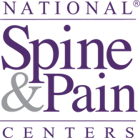Bulging Disc: Causes, Symptoms, and Treatment
- Category: Pain Management
Back pain comes in many forms, with a myriad of symptoms depending on the issue. One such concern is a bulging disc. These are also often referred to as variants called herniated, ruptured, or protruding discs. There are two basic sources when pinpointing what causes a bulging disc. First, it is considered a common age-related spine injury. As the discs degenerate over time, people will feel the onset of symptoms progress gradually due to wear and tear. A second, less common, cause is trauma to the spine like an accident from a car crash or sports injury.
What Causes a Bulging Disc?
Here's how it happens. Our spines are composed of interlocking bones called vertebrae. The job of the vertebrae is to support the spine and allow the back to bend and move. Between each of the vertebrae, there are discs composed of soft tissue. The discs provide movement capability between the vertebrae and prevent bones from rubbing against each other.
The discs also act as shock absorbers to prevent damage during movement. The discs are comprised of a tough outer layer with a jelly-like substance in the middle. This gel may lose its flexibility and stiffen with age. Plus, we often lose a certain amount of gel as we age. Without that buffer between the vertebrae, the discs become compressed and push out or bulge. When this disc protrusion occurs, it may often make contact with a nerve and trigger pain.
Contact National Spine & Pain Centers to schedule an appointment with an affiliated pain specialist today.
Bulging Discs Symptoms
When the nerve is affected, it can also lead to weakness, numbness, or mobility issues. It’s important to note that not all protruding discs cause pain. It is progressive, so you can have disc damage and not feel the effects for years.
When you do begin noticing pain from a bulging disc, your symptoms depend on how severe the damage is and where it’s located. Typically, the damage is in the lumbar or lower back or in the cervical spine, the neck area.
So, what does a bulging disc feel like? Some people may have no initial symptoms.However, as the disc further degenerates or herniates, sharp or burning pain might shoot into your arm or leg when you cough, sneeze, or move into certain positions. Often patients experience numbness or tingling in the legs and feet. You may feel spasms in the back muscles, reduced mobility in the legs, knees, and ankles, difficulty walking, sciatica, and radiating pain to the arms or ribcage.
How to Fix a Bulging Disc
It is always best to seek the expert advice of a pain management doctor like the specialists at National Spine & Pain Centers to properly diagnose and treat your symptoms. Disc bulge treatment is dependent on many factors, like the location of the protrusion and the intensity of the pain. There are short- and long-term options designed to decompress the spinal canal and ease the pain.
So, the question is, will a bulging disc heal on its own? The answer is — it depends; 90% of the time, pain caused by a herniated disc will subside in about six months.
There are some helpful home remedies you can try as your first line of treatment for a bulging disc, such as anti-inflammatory medications to reduce pain and swelling. Your pain management specialist may recommend steroid injections as an option if you are experiencing severe pain.
Your physician may also recommend physical therapy and light exercise like walking or yoga. These easy movements can strengthen muscles and improve mobility. But it’s important to follow the advice of a specialist to avoid exacerbating the condition.
Another option includes stretches for the back, neck, and legs. When properly taught by a physical therapist, this is another option that can be used at home to ease the pain.
Additionally, you can purchase protective equipment to support your spine during routine activities. There are special devices that improve lumbar support, for example, as you sit at your work desk chair or in the car.
While a degenerative disc can occur for anyone, there are some preventions that can help reduce your chances or at least help your level of pain if you do have a bulging disc. If you maintain a healthy body weight, reducing pressure on the vertebrae will be helpful. Consider regular exercise to strengthen your core and support your back. A strong core can greatly reduce the chance of a herniated disc. Certain exercises, like swimming, cycling, and walking, take the stress off your back while helping you watch your weight.
Bulging Disc Surgery
If the pain is not lessening after a few weeks with the above mentioned treatments, it can mean the condition has worsened. A bulging disc that ruptures may involve bed rest or require surgery. In rare cases, a herniated disc may affect the nerves that control the bladder and bowel. Surgery will be necessary to relieve pressure on the nerves and restore bladder and bowel function.
Most herniated discs do not require surgery. In about nine out of 10 patients, symptoms will resolve in days to weeks.
If you are experiencing back pain, book an appointment with a pain management specialist at National Spine & Pain Centers. It’s important to be correctly diagnosed to receive the proper treatment to alleviate your pain.


.png)
.png)